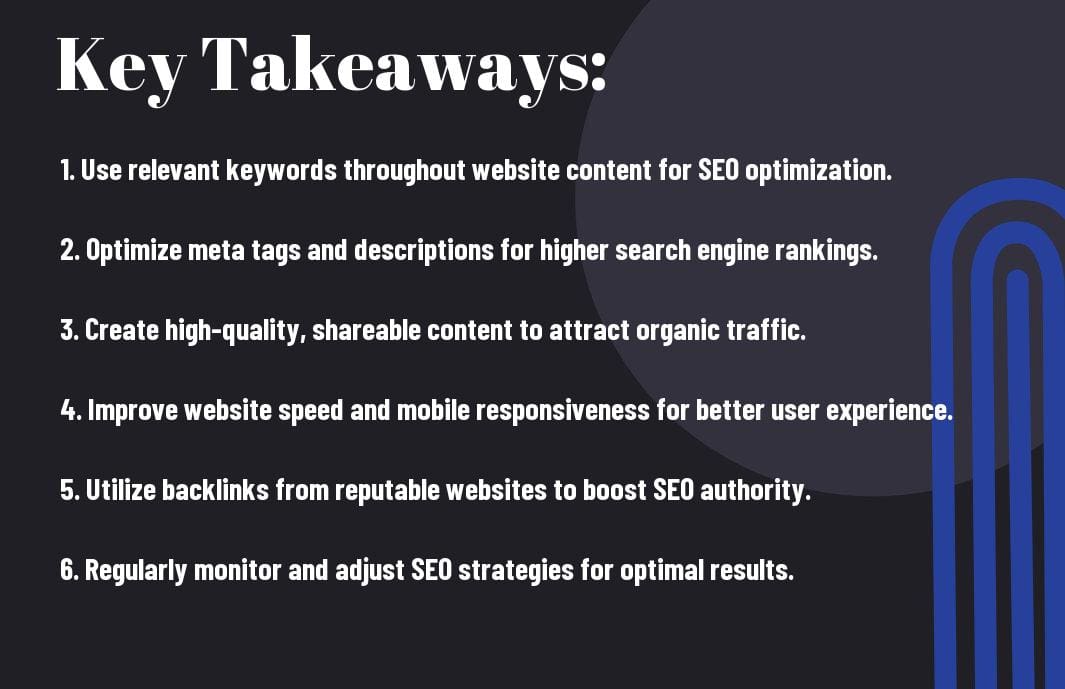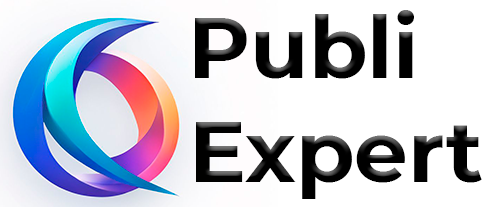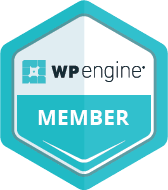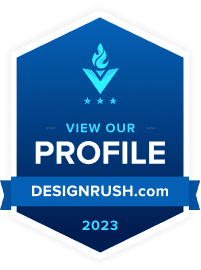Just creating a website is no longer enough in today’s competitive digital world. To stand out and attract more visitors, it’s crucial to optimize your website for search engines using effective SEO techniques. With millions of websites on the internet, having a solid SEO strategy can dramatically improve your website’s visibility and drive more organic traffic your way. In this blog post, we will highlight some key strategies and techniques that can help boost your website’s rankings and increase your online presence.
Key Takeaways:
- Keyword research is imperative: Conduct thorough keyword research to identify relevant keywords that will help your website rank higher in search engine results.
- Optimize on-page elements: Improve your website by optimizing meta tags, headings, images, and content for better visibility and search engine ranking.
- Build quality backlinks: Focus on acquiring backlinks from reputable and relevant websites to increase your website’s authority and improve its search engine ranking.

Foundation of SEO
Assuming you want to improve your website’s visibility and attract more organic traffic, understanding the foundation of SEO is crucial. Search Engine Optimization (SEO) is the process of optimizing your website to rank higher in search engine results pages (SERPs) and drive relevant, organic traffic to your site.
How Search Engines Work
With billions of websites on the internet, search engines utilize complex algorithms to determine the most relevant and authoritative content for a user’s search query. Search engines send out ‘crawlers’ or ‘spiders’ to collect information about websites and index that content in their databases. When a user enters a search query, the search engine returns results based on factors like relevance, authority, and user experience.
The Role of Crawling and Indexing
On a fundamental level, crawling is the process by which search engine bots systematically browse the internet, discovering and collecting information about web pages. Once a page is crawled, search engines index the content to make it searchable to users. Indexing involves storing and organizing the information collected during the crawling process, enabling search engines to retrieve relevant results quickly.
Foundation: Understanding the importance of crawling and indexing is critical in optimizing your website for search engines. Without proper crawling and indexing, search engines may not be able to find and rank your content in search results, severely impacting your website’s visibility and traffic.
Keyword Research and Optimization
Identifying Effective Keywords
After understanding the importance of keywords in SEO, the next crucial step is identifying effective keywords that will improve your website’s visibility. An effective way to start is by putting yourself in the shoes of your target audience and thinking about what terms or phrases they would use to search for your content or products. Utilizing keyword research tools such as Google Keyword Planner, SEMrush, or Ahrefs can also provide valuable insights into search volumes and competition levels for specific keywords.
Strategies for Keyword Integration
Any successful SEO strategy involves integrating keywords naturally throughout your website’s content. An effective approach is to incorporate keywords in your page titles, meta descriptions, headers, and within the body of your content. Additionally, creating high-quality, keyword-rich content that provides value to your audience will not only improve your search engine rankings but also enhance the user experience on your website.
Plus, be mindful of keyword stuffing, which can lead to penalties from search engines. It is imperative to find the right balance between optimizing for keywords and maintaining the quality of your content to ensure a positive impact on your website’s visibility.
On-Page SEO Elements
To increase the visibility of your website, it is important to focus on on-page SEO elements. These elements play a crucial role in optimizing your website for search engines and improving its ranking in search results. By understanding and implementing on-page SEO techniques effectively, you can boost your website’s visibility and attract more organic traffic.
Content Optimization
Elements such as quality content, relevant keywords, proper keyword placement, and engaging multimedia can significantly impact your website’s SEO performance. By creating high-quality content that caters to your target audience’s needs and interests, you can improve your website’s relevance and authority in the eyes of search engines.
Title Tags and Meta Descriptions
On-page SEO involves optimizing title tags and meta descriptions to accurately reflect the content of each webpage. Titles tags are crucial as they provide a concise summary of the page’s content, while meta descriptions give users a glimpse of what to expect. By incorporating relevant keywords and creating compelling descriptions, you can enhance click-through rates and improve your website’s visibility in search results.
Header Tags and Structured Data
The use of header tags (H1, H2, H3, etc.) helps search engines understand the hierarchy and structure of your content. Structured data, such as schema markup, provides additional context to search engine bots, aiding in better indexing and ranking of your website. Optimizing header tags and incorporating structured data can improve your website’s visibility and make it more user-friendly.
Image Optimization
Images play a vital role in enhancing the user experience and breaking up textual content. When optimizing images for SEO, it is important to use descriptive filenames, alt text, and captions that include relevant keywords. By optimizing images, you can improve your website’s accessibility, loading speed, and overall SEO performance.
Technical SEO
For
Site Speed and Performance
Performance is a crucial factor in technical SEO, affecting both user experience and search engine rankings. A website’s speed and performance can impact how users interact with the site and determine whether they stay or leave. Slow-loading pages can lead to high bounce rates and lower conversions. To enhance site speed and performance, optimize images, minify CSS and JavaScript files, leverage browser caching, and utilize a content delivery network (CDN).
With
Mobile-Friendliness and Responsive Design
With the increasing use of mobile devices, having a mobile-friendly and responsive design is imperative for SEO success. Google prioritizes mobile-friendly websites in search results, making it imperative for websites to adapt to different screen sizes and resolutions. Responsive design ensures that your site looks and functions seamlessly across various devices, providing a positive user experience and improving search engine rankings.
MobileFriendliness is not just about responsive design; it also includes factors like touch-friendly elements, legible font sizes, and proper viewport settings. By focusing on mobile-friendliness, you can cater to the growing number of mobile users and ensure that your website is accessible and user-friendly on all devices.
Secure Sockets Layer (SSL) and HTTPS
An SSL certificate and implementing HTTPS encryption are crucial for website security and SEO. Secure Sockets Layer (SSL) encrypts the data transmitted between a user’s browser and the website, providing a secure connection. Google considers HTTPS a ranking signal and prioritizes secure websites in search results. By migrating to HTTPS, you not only boost your site’s security but also improve your SEO efforts.
Responsive websites that prioritize site speed, mobile-friendliness, and security with SSL and HTTPS protocols have a competitive edge in search engine rankings. By focusing on these technical SEO aspects, you can enhance your website’s visibility and provide a seamless experience for users across all devices.
Off-Page SEO Techniques
The Power of Backlinks
All successful SEO strategies include a focus on backlinks. Backlinks are links from other websites that lead back to your own site. Quality backlinks from reputable websites can significantly boost your website’s authority in the eyes of search engines, ultimately leading to higher search result rankings. When other websites link to your content, search engines view it as a vote of confidence in the relevance and credibility of your site. To increase the number of quality backlinks, consider reaching out to industry influencers, creating shareable content, and engaging in guest blogging opportunities.
Social Media as an SEO Tool
On top of being a powerful marketing tool, social media can also play a significant role in boosting your website’s SEO. By leveraging social media platforms and sharing your website content, you can increase brand awareness, drive more traffic to your site, and ultimately improve your search engine rankings. Engaging with your audience on social media not only helps you build a loyal following but also encourages social signals that can positively impact your SEO efforts.
Moreover, search engines consider social signals from platforms like Facebook, Twitter, and LinkedIn when determining search result rankings. The more likes, shares, and comments your content receives on social media, the more likely it is to be deemed valuable and relevant by search engines.
Guest Blogging and Content Marketing
Techniques like guest blogging and content marketing can be incredibly beneficial for your off-page SEO efforts. By publishing high-quality content on reputable websites in your niche, you can not only build backlinks to your site but also establish yourself as an industry expert. Guest blogging allows you to tap into a new audience and drive more traffic to your website, ultimately improving your search engine rankings.
Another important aspect of guest blogging and content marketing is to ensure that the content you publish is relevant, engaging, and adds value to the reader. By providing informative and valuable content, you can establish credibility and trust with your audience, leading to increased brand visibility and ultimately, improved SEO performance.
Local SEO
Optimizing for Local Searches
Keep in mind that optimizing your website for local searches is crucial for businesses targeting a specific geographic location. To improve your visibility in local search results, focus on including location-specific keywords throughout your website’s content. This includes your meta tags, headers, and alt text for images.
Leveraging Local Business Listings
On top of optimizing your website, it’s vital to leverage local business listings to enhance your online presence. Registering your business on platforms like Google My Business, Yelp, and Bing Places for Business can significantly boost your visibility in local search results. Make sure to fill out all the information accurately and consistently across all platforms to build trust with search engines and potential customers.
This strategy can also help you stand out from competitors in your area and attract more foot traffic to your physical location. Additionally, positive reviews on these platforms can enhance your reputation and further improve your ranking in local search results. Ensure that you regularly monitor and respond to reviews to engage with your customers and show that you value their feedback.
Tracking Results and Adapting Strategies
Unlike other marketing strategies, SEO allows for tracking and measuring results with precision. This data-driven approach is important for understanding the impact of your efforts and making informed decisions to improve your website’s visibility. One crucial step in the process is setting clear SEO goals and Key Performance Indicators (KPIs) to measure success.
Setting SEO Goals and KPIs
Adapting your SEO strategies starts with defining specific, measurable goals that align with your overall business objectives. These goals could include increasing organic traffic, improving search engine rankings for target keywords, or boosting conversion rates. Once you have established your goals, set KPIs to track progress towards achieving them. Whether it’s monitoring website traffic, keyword rankings, or engagement metrics, having defined KPIs will help you stay focused and evaluate the effectiveness of your SEO efforts.
Tools for Tracking SEO Progress
Adapting your SEO strategies also involves utilizing the right tools to monitor and analyze your progress. Tools like Google Analytics, SEMrush, Moz, and Ahrefs can provide valuable insights into your website’s performance, keyword rankings, backlink profile, and more. These tools help you identify areas of improvement, track the impact of your optimization efforts, and stay ahead of your competition. By regularly monitoring these metrics, you can make data-driven decisions to refine your SEO strategies and achieve better results.
To maximize the effectiveness of your SEO campaign, consider investing in tools that offer advanced features such as competitor analysis, site audits, and rank tracking. These tools can help you identify opportunities for growth, uncover potential issues that may be holding your website back, and optimize your strategies for maximum impact.
Advanced SEO Tactics
Your website’s visibility is crucial for attracting organic traffic and boosting your online presence. To take your SEO efforts to the next level, consider implementing advanced tactics that can help you outperform your competitors. For more insights, check out How to Boost Your Website Visibility with Effective SEO Techniques.
Voice Search Optimization
Advanced SEO involves optimizing your website for voice search, as more users are relying on voice assistants like Siri and Alexa to find information. To enhance your voice search SEO, focus on long-tail keywords, natural language patterns, and providing direct answers to common questions. It’s important to structure your content in a way that anticipates and answers users’ voice queries effectively.
AI and Machine Learning in SEO
With the advancement of AI and machine learning technologies, search engines are getting smarter at understanding user intent and delivering relevant results. Incorporating AI tools in your SEO strategy can help you analyze vast amounts of data, identify trends, and predict future search patterns. By leveraging AI algorithms, you can create more personalized content and optimize your website based on user behavior.
Plus, AI can assist in automating tedious tasks, such as keyword research and content optimization, allowing you to focus on strategic initiatives. By embracing AI and machine learning in your SEO efforts, you can stay ahead of the curve and drive impactful results for your website.
Avoiding Common SEO Mistakes
Now, to truly boost your website’s visibility, it is crucial to avoid common SEO mistakes that could harm your online presence. By steering clear of unethical practices and staying updated with search engine algorithm changes, you can ensure that your website ranks organically and sustains its visibility over time.
Black Hat SEO Practices to Avoid
One of the most critical aspects of maintaining a strong online presence is to steer clear of Black Hat SEO practices. These unethical techniques may provide short-term gains but can ultimately lead to your website being penalized or even banned by search engines. Keyword stuffing, cloaking, buying backlinks, and content scraping are some of the common Black Hat practices that should be strictly avoided. Focus on creating high-quality content and building organic backlinks to foster long-term success for your website.
Staying Updated With SEO Algorithm Changes
One imperative aspect of effective SEO strategy is staying updated with SEO algorithm changes introduced by search engines. Any delay in adapting to these updates can significantly impact your website’s visibility and ranking. Regularly monitoring industry news, attending webinars, and following reliable SEO resources can help you stay ahead of the curve. It is crucial to understand the changes and adjust your SEO tactics accordingly to maintain your website’s position in search results.
It is important to note that search engines like Google frequently update their algorithms to provide users with the most relevant and high-quality search results. By staying informed and adapting your SEO strategies to align with these changes, you can ensure that your website remains competitive in the ever-evolving digital landscape.
Summing up
With this in mind, implementing effective SEO techniques is crucial for boosting your website’s visibility and driving more organic traffic. By optimizing your website with relevant keywords, high-quality content, and a user-friendly experience, you can improve your search engine rankings and attract more visitors.
Remember to regularly monitor your website’s performance, analyze results, and adjust your SEO strategies accordingly to stay ahead of the competition. By staying up-to-date with the latest SEO trends and best practices, you can ensure that your website continues to attract and engage your target audience online.
FAQ
Q: What is SEO?
A: SEO stands for Search Engine Optimization. It refers to the process of optimizing your website to increase its visibility and ranking on search engine results pages.
Q: Why is SEO important for my website?
A: SEO is important because it helps your website appear higher in search engine results, driving more organic traffic to your site and increasing its visibility to potential customers.
Q: What are some effective SEO techniques?
A: Some effective SEO techniques include keyword research, on-page optimization, creating high-quality content, building backlinks, and improving website speed and user experience.
Q: How can keyword research benefit my SEO strategy?
A: Keyword research helps you understand what terms and phrases your target audience is searching for, allowing you to optimize your website’s content with relevant keywords to improve its visibility in search results.
Q: What is on-page optimization?
A: On-page optimization involves optimizing various elements on your website such as title tags, meta descriptions, headings, and internal links to improve its search engine rankings and visibility.
Q: How can I build backlinks to improve my website’s SEO?
A: Building backlinks involves acquiring links from other websites to your site. This can be done through guest posting, broken link building, and creating shareable content that others will link to, which can improve your website’s authority and ranking in search results.
Q: How important is mobile optimization for SEO?
A: Mobile optimization is crucial for SEO as search engines prioritize mobile-friendly websites. Ensuring your website is responsive and provides a seamless user experience on mobile devices can help improve its visibility and ranking in search results.




